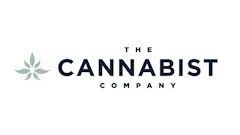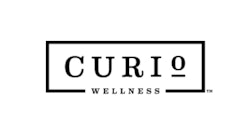
With flags and signs expressing Black Lives Matter and LGBTQ pride in windows and above counters, Hashtag Cannabis lets it be known that the store is inclusive.
The Seattle-based dispensary was ranked No. 4 in Cannabis Dispensary and the Best Company Group’s “Best Companies to Work For – Dispensaries” awards program. Hashtag answered in responding to the “Best Companies” survey that it employs practices to recruit and retain employees from different ethnicities and cultural backgrounds.
RELATED: You can find Hashtag Cannabis’ “Best Companies” profile here and all the other “Best Companies” profiles here.
Hashtag Marketing Director Christine Bryant Cohen performs community outreach, in part, to display the dispensary's embrace of diversity. A call she made to NPR affiliate KUOW about marijuana crimes led to this story. She spoke with us about ways to encourage and promote diversity in hiring and working with staff.
Cannabis Dispensary: In response to our “Best Companies to Work For survey,” Hashtag said it donates to charities that are focused on supporting women, families and communities of color, and it sponsors a local women's softball team. Have those relationships resulted in the recruitment of people from those communities and groups to work as employees at Hashtag?
Christine Bryant Cohen: Supporting those organizations and running those donation campaigns has not resulted in direct hires. I can say that for sure, but I can [also] say that we have been very strategic about which organizations we support as a way to use our influence as a small business—whatever influence we may have—to broadcast to our community what our company values are. I believe that has indirectly led to a broader range of diverse applicants coming to Hashtag. … We employ several people of color; we employ around half people who identify as women, around half people who identify as men and then a small percentage of people who identify as non-binary as well. We are super queer-friendly. That's just a really important part of Hashtag, ever since Hashtag opened, is being a place that accepts all people, however they chose to present themselves, exactly as they are.
CD: How does Hashtag actively recruit and retain employees from different ethnicities or cultural backgrounds?
CBC: I think it would be more correct to say that we don't actively recruit from communities of color or from gender-diverse communities. I think it would be most accurate to say that we have focused and invested effort and time into making sure that when we post job openings, that our job descriptions are as welcoming as they can possibly be, like as inclusive and welcoming as they can possibly be. We've invested administrative research time into that, and we've seen the benefits. We ran the same very basic Craigslist ad for job openings for a few years and got great candidates, many of whom are with us today—wonderful people, but not really a diverse crowd of people.
We then decided that wasn't how we wanted to present ourselves. We were like, “If there's a way that we can make it clear to people of color and people with really diverse identities—non-normative identities—that we're a good place to work in the cannabis industry, we're here to support you, we'd love to have you apply; if it's a good fit, then we'll go forward.” Revising those job descriptions on Craigslist made a huge difference, so we saw an uptick in applicants who are people of color and that has been just wonderful for us. Seattle is predominantly white, for sure, but there are significant communities of color that exist in Seattle as well. So, it takes a little bit more work to kind of make it clear that you want to support hiring folks from those communities of color in Seattle.
CD: Hashtag said in response to our survey that it offers benefits for bus passes, light rail passes and parking, as well as reimbursements for and discounts on products. How do those programs work, and how employees from diverse backgrounds can benefit from those offerings?
CBC: We offer bus, transit, [day care], [health care] and parking reimbursements available through our FSA program. … They're not full reimbursements, they're partial reimbursements [of 25% on average for bus, transit and metered parking]. But they definitely add up. I'm signed up for that part of the FSA, and I find it really beneficial.
We offer a flat 50% off staff discount to everyone who works with us. If you are a Hashtag employee, regardless of which location you work at, regardless if you're in administration or if you're a budtender, you get 50% off right off the bat, off of full-price products. That's the lowest we can legally sell anything for, because we have to account for costs of goods, of course, but also the 47.1% taxes that passed through our hands. … We offer a staff discount of 50% off all full-priced products across the board, whether you've worked with us for a day or you've worked with us for four years. That is just a benefit of working at Hashtag. A second benefit of working at Hashtag is if you submit a review to our product review form of the product you bought at Hashtag [and have not reviewed that product before], we will reimburse you for that purchase [up to $50 if a product review has not been submitted within two weeks].
CD: Are the reviews like five stars, just a rating?
CBC: No, multiple questions—multiple questions for multiple purposes. Our purchasing department designed this product review form, and they tweak it over time. They've revised it several times in the four years I've been working here. Right now, I think it's at its most helpful because it allows our purchasing team to do some quality control. Our staff responds with, “I think the packaging here has a problem, and that problem means it's harder to see the product and so it's harder to see it.” That might lead us to talk to our vendor partner about that product and say, “Hey, we think this would sell better if you could move this sticker,” that kind of thing. But it also monitors for quality concerns. Thankfully, we have very, very, very few quality concerns that have ever cropped up. We have excellent vendor partners who just are as dedicated to making great product as we are to selling it, so we're really choosy about who we work with in that regard. But things happen, and this is a great way to just know that our employees always have a way to respond with their thoughts, what they're loving, what they're concerned about. We take that feedback very seriously. So, it's good for everybody.
CD: Cannabis companies are always seeking the best talent they can find. But with cannabis being a relatively new industry and there being a history of stigma with the crop, not everybody has a relationship with cannabis already. How can cannabis companies assure potential recruits who don't already have a relationship with cannabis, including minorities, that a dispensary is a good place to work?
CBC: We do a couple things. Many of our outreach events are designed to reduce stigma around cannabis use, just flat out, and a lot of our sponsorships and donation campaigns have been designed to support those organizations. But a second motivation of ours as a business has been that we just want to get the name Hashtag Cannabis as a cannabis business in front of more people in more places, not only with the hope that they shop with us, but also just to make it as normal as possible. It’s normal to work for a cannabis business, we're a normal part of the community, we're not behind closed doors, it's okay to talk about weed, it's okay to use weed, it's okay to like it. That's a substantial portion of my job as a marketing director, to organize those outreach campaigns that work to reduce stigma.
We also have our monthly Guided Shopping for Seniors free event series, where we just invite anybody over the age of 21, but we prepare it mostly for folks who consider themselves to be seniors—just to show up for a free class once a month where they can sit with us, have coffee, not on the sales floor, and talk about all the questions they might have. We can give them some basic information.
We have hired some folks who use cannabis in a really limited capacity, and it is definitely not a job requirement that you use cannabis at all to work at Hashtag. We also provide a whole, whole, whole lot of sales education, product education, to everyone who works here, and we're constantly striving to offer even more so that our staff doesn't have to rely on only their firsthand experience of a product to be able to sell it effectively. I think we have around 900 different products in stock right now. That's just not realistic to expect somebody to try everything, even with our reimbursement program. We do a lot of internal product education. We invite our vendor partners to come and do education about their company's products also. We go on tours of processing facilities and grow facilities. All of that is kind of designed to make it easier as an employee at Hashtag to talk about what cannabis is, what it does, what the different varieties and methods of consumption would do for you.
We [also] respect our employees' privacy. We always make it clear, like, 'We will never feature you on our social media or our website without your permission. You are a person who works here, and that is all that your job entails. If you would like to be part of marketing campaigns, photo shoots, public outreach, that kind of thing, awesome, but if not, that's okay.’ We try to be sensitive to however an employee of ours wants to present themselves to their friends, to their family—that's up to them. That's part of navigating the stigma.
CD: Hashtag said in response to the survey that it pays 75 to 99% of the premium for medical and vision. Can those offerings help employees from marginalized backgrounds, for instance, more affordably achieve their health goals?
CBC: Yeah, I would say so. We start offering health insurance to our part-time workers at three months. We really want to make it as easy as possible for everybody who works here to have medical and vision insurance. This year, we're also offering dental as part of that package, too [and Hashtag currently pays 60% for medical, health and vision]. I'm so pleased to work for a business with fewer than 50 employees that does not have to offer any health insurance at all, but does, and makes a point to offer good health insurance. I personally benefit really greatly from that. And it's important, I think, for every person, but especially for folks from communities of color and marginalized backgrounds—having easy access to healthcare is not normal in the service economy, in the retail industry and in the food and beverage industry, and that's where a whole lot of our employees come from. I think it definitely sets us apart as a place to work and makes it a more sustainable job to have and to stay in.
CD: Also following up from the survey, Hashtag said it offers mentoring, job shadowing and cross-training as well as attendance to formal leadership training. Do those things help a diverse workforce become leaders in the company?
CBC: Absolutely, I would—become leaders in the company, and I would say, too, explore other opportunities in the company. I'm the marketing director, so our graphic designer and creative-assistant-director … she's my righthand person … she offered two of our recently hired budtenders—I think they've just now worked with us for six months—both of whom are from communities of color—they were both interested in just learning more about what she did as a graphic designer. They approached her and said, “Could we shadow you and just follow you around for a day, see what you do, learn about it? We don't know anything about it, but we're kind of interested in learning more about what graphic design entails.” She asked me, “Is that okay?” and I said, “Hell yeah, it's okay; of course, it's okay.” So, they just shadowed her for a day. That opportunity to just talk to somebody else inside your company as an entry-level worker and say, “I just want to learn more about what all we do here”—I think that makes us a great place to work.
I want everybody to be working at Hashtag happily doing what they're doing, not feeling like there's a ceiling here or they're stuck. And we would love to retain everyone forever, but we know that that's not reality for a retail job or for a cannabis industry job. [COO and co-founder] Jerina [Pillert], especially, has set her personal goal for a leader of Hashtag to leave everybody in better shape than they came in, and to help everyone improve personally and professionally as best we can. That's part of why we do formal evaluations for everybody, too, to really focus on, “What more would you like to get out of Hashtag and how can Hashtag help you do that?”
CD: Is there anything else that we haven't talked about that you would like to add about retaining or hiring a diverse workforce?
CBC: Logan [Bowers], our co-founder and CEO, [and Jerina Pillert, COO and co-owner] had testified in 2017 for a specific bill that was before the state legislature that would vacate marijuana misdemeanor convictions statewide. That bill didn't pass, but a later one did pass.








.png?auto=format%2Ccompress&fit=crop&h=141&q=70&w=250)















